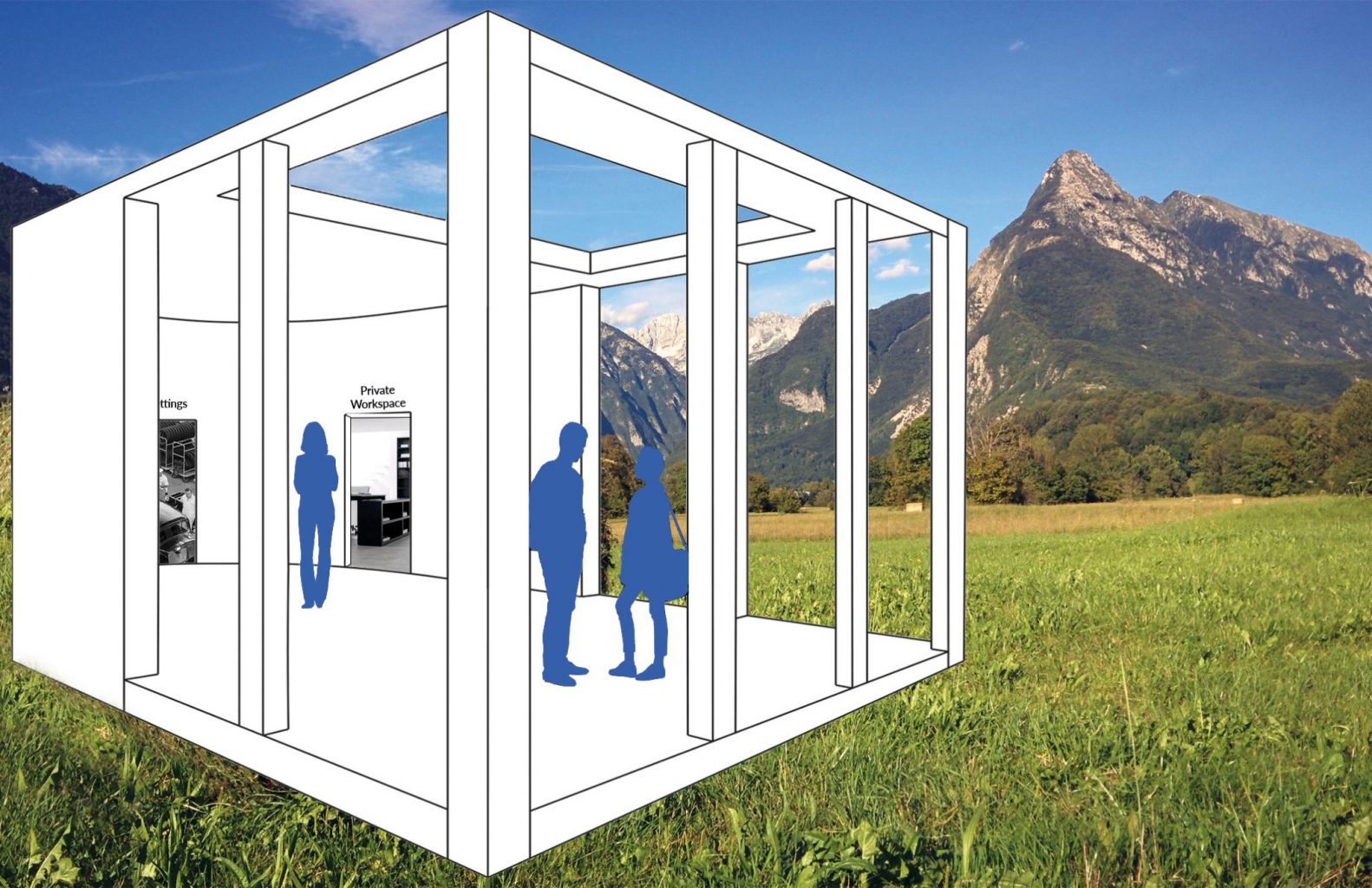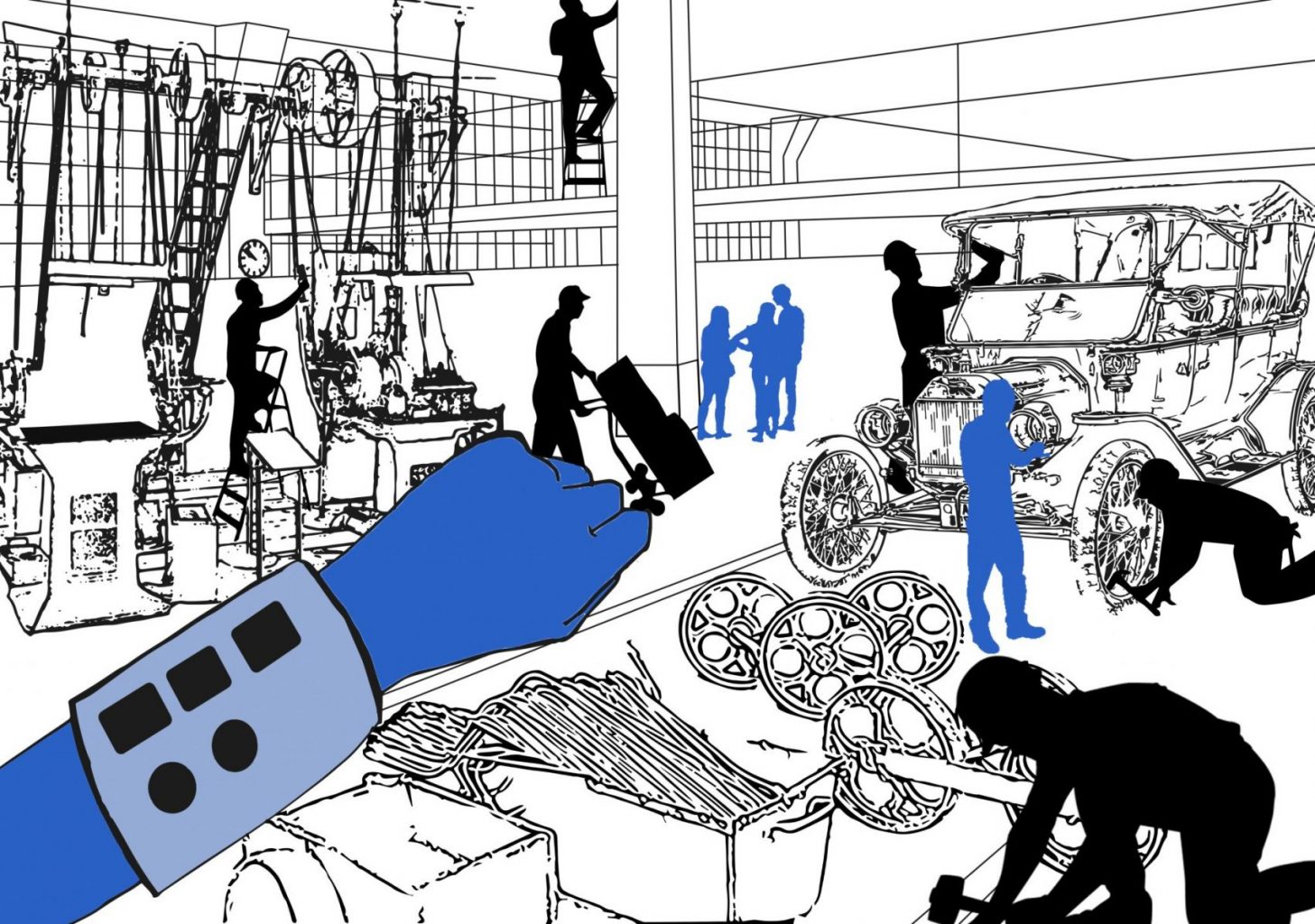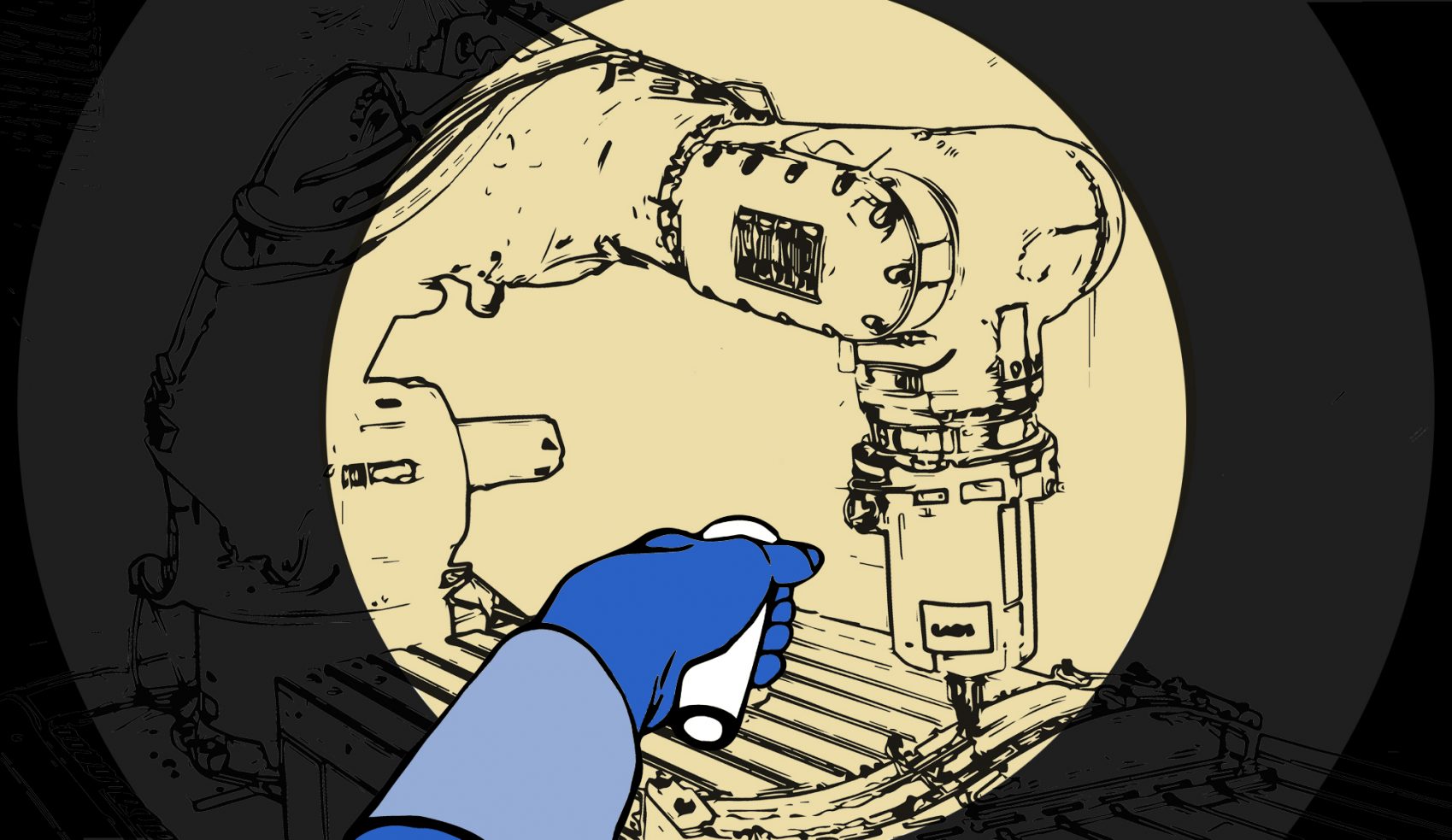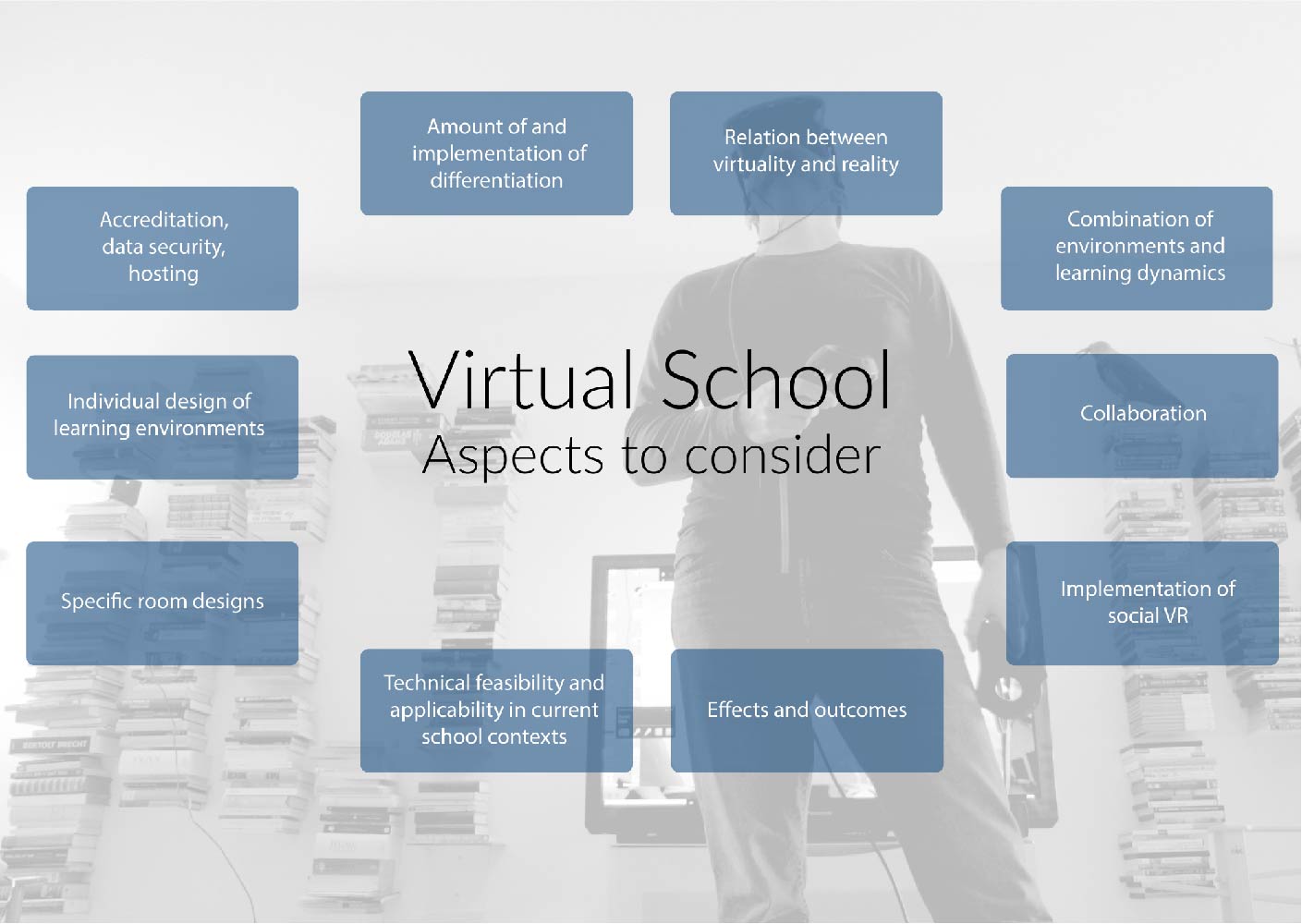written by Johannes Grapentin, Florian Sochatzy and Marcus Ventzke, German version here
Increasingly, present schools seem like antiquated and unworldly institutions of a different era – led by bizarre rules and lacking connenctions to the realites of present-day life. Our public schools are buildings made of bricks and concrete, therefore localized in specific places and part of regional and supraregional administrations which are often understaffed and structurally ailing. The core of their pedagogical task remains in memorizing lifeless information particles.
Therefore, why do we still have schools today? And what function do we want them to have? These temporal, spatial, organizational and not least didactic structures of the current school system are largely unsuitable for modern educational goals, as they still aim to ensure that all learners learn the same in predetermined time units and are judged according to uniform standards. It is not understanding, experiencing, comprehending and abstract thinking that characterizes the students’ learning biography, but memorizing an existing canon of facts. At the transition to the digitized world, however, our society faces completely different challenges and, consequently, education must also be conceived under different terms.
We need
- realistic learning objects related to the challenges of the present and the future,
- individual learning pathways that lead to flexible, interest-related, subject-related and learning-related group formation
- learning scenarios focused on problem solving that exceed previous development and processing conventions,
- a comprehensive, content and media-based personality education that enables the expression of social competence, aesthetic awareness and emotional responsibility.
Modern education will have to aim at
- the development of creativity and ability to act in unknown situations,
- possibilities of personal formation, realization and ‘reinvention’ in a constantly changing world.
Therefore, modern education requires the ability of each individual to
- distance themselves from the already existing,
- analyze critically,
- regroup well-known patterns of action and knowledge stocks and
- be able to fill in defects creatively through new Ideas.

Forum einer Virtuellen Schule 
Eine Autofabrik in der VR-Schule 
Dunkelfabrik in der VR-Schule
School in Virtual Reality (VR School) as a Potential Educational Renewer
Technical developments in the field of virtual reality (VR) have already made enough progress to allow immersive spaces and settings. Falling acquisition costs for hardware equipment and an ever-growing selection of available VR experiences are currently opening the door to a respectable market for virtual reality. The technology is leaving the sphere of scientific test laboratories and POCs and will soon be part of everyday culture.
Consequently, the question arises as to what extent VR can also become an elementary component of educational processes. On the basis of the rapid technical development, learning spaces in VR can now be thought of and implemented, which could initially be complementary to school and, in a next step, could even replace it entirely. The big tech companies are already working on ways to revolutionize the educational market with the help of VR. Schools that are developed and operated by tech companies according to their needs, are no longer utopic. For this reason, it is imperative to prepare for such a school in virtual reality on a theoretical level, but also on the basis of practical empirical experiences today.
The Institut für digitales Lernen (Institute for Digital Learning) has founded a subsidiary, the Digitale Lernwelten GmbH (Digital Learning Worlds), to commit itself to this task. The following points are the theoretical foundations of such a school, a concept for a practical implementation is already in progress.The school in virtual reality, which has beendeveloped by the Institute for Digital Learning under the project title mSchool is the basis of different learning spaces, which provide a learning environment for learners and teaching environment for teachers regardless of material and spatial conditions.
All subsequent demands must be subject to a theoretical, empirical and practical questioning at any time.
- School in virtual reality is based on the theory of constructivism and redefines the interdependencies of external conditions and inner design processes of school and learning in the digital world. It offers the opportunity to use added digital value as well as to develop new digital value.
- Learning is understood as an extensive search for solutions. Access to information is a necessary condition of teaching, not its goal.
- Twenty-first century skills (creativity, communication, collaboration and critical thinking) form the pedagogical-didactic framework in the development of the school’s areas of experience, analysis, application and reflection in virtual reality. In addition, subject-didactic competency models and topics are added to this framework.
- Spaces for learning, working and experiences are completely redesigned. Findings from architectural psychology, educational space research, international school research, etc. serve as the basis for a new construction and evaluation of the school’s living and working space and can thus be consistently implemented for the first time.
- Didactic reduction of subject-related topics does not lead to a qualitative loss in the way that learning objects are isolated from their supporting ideas and concepts. Media presentations allow for genetic understanding. Selection decisions and procedures are made transparent.
- Media presentations are reduced to print and speach in the age of paper – this will be diversified. The often inadequate representations of Topics and Problems in analogue media are resolved into experiences and vivid scenarios that correspond to the human capacity for perception and processing: states and processes remain states and processes in medial representations, i.e. they are portrayed as persistent or , respectively, in movement. Unnessesary forms of complexity thus eliminated.
- Human action and interaction are not fundamentally coded textually in experiences in school in virtual reality. They are “humanized” or “rehumanized” medially because people think in moving, dense images and situations.
- In-depth and advanced digital analysis options are used for methodical work in the subjects.
- Differentiation becomes a standard: like in an open-world adventure, different paths lead to different variaties, emphases and learning objects.
- Individualization is a basic principle of school in virtual reality. On the one hand, this means individual access to experienced and working areas. This includes the permanent storage and availability of personal experiences, procedures and work results. On the other hand, individualization signifies a diagnosis-based design of individual learning pathways and learning progress examinations. However, the conditions of learning are also customizable: structural equipment simulations, room representations, lighting conditions, route guidance, etc.
- A technology-based diagnosis of individual learning prerequisites, characteristics and results are the basis for the development of individual learning scenarios.
- School in virtual reality thrives on the participation of its users – participation of teachers and learners in the design of the learning rooms is an elementary component of this school, because it promotes personal responsibility and enables experience of effectiveness.
- Teachers and learners always have sovereignty over their actions within the VR experience and work spaces.
- School in virtual reality is a social school. Teachers have the opportunity to change their professional self-image, to develop from knowledge facilitators to learning companions. They are experts (technical), moderators (didactical), mentors (social) and advanced learners (individually). Teachers are liberated from the erroneous fiction of having to have exclusive access to all topics and media, which they then distribute and make accessible to others. In virtual reality, learners are (co-)designers of topics and tasks, their social relations and their spatio-temporal environment. School in virtual reality is permanently reexamined and developed constructively. New technical findings are implemented as updates occur.
Thus, school in virtual reality enables highly differentiated and individualized promotion in new space-time-relationships, on individual learning paths, under development of competences, on the way to “intelligent knowledge”.
The basis of the design and implementation of school in virtual reality is not a technical hype, but the need for change of the predominant educational entities based on deepened insights. It will be vital to consider a wide variety of questions from different disciplines. Some of them can be found on this graphic:

The Institute for Digital Learning will address these questions and, in collaboration with partners from politics, other businesses and scientific communities, conceptualize and explore the concept of school in virtual reality. We look forward to receiving input and constructive criticism from the community.